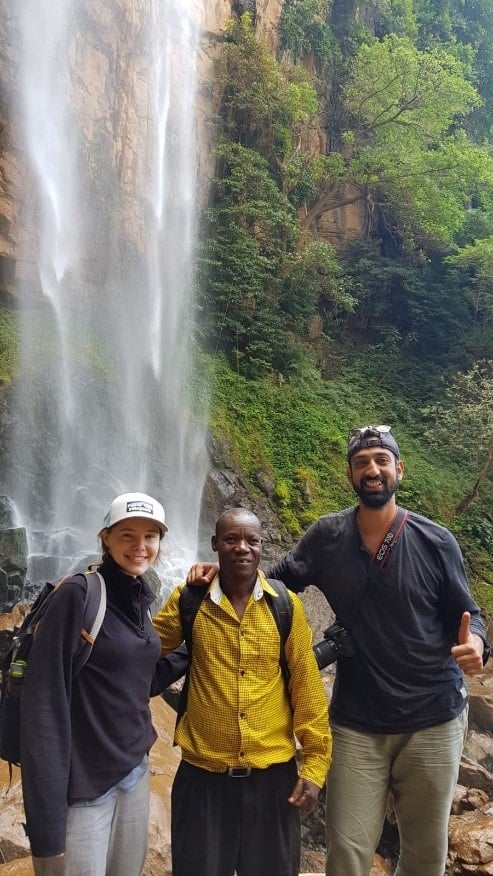
This World Wildlife Day, we revisit the engagement between Peace Parks Foundation (PPF) and INSEAD’s 20D MBA students, as they tackled strategy and sustainability for Malawi’s national parks for Master Strategist Day.
Wildlife sanctuaries and conservation parks are some of the world’s last resorts in preserving endangered wildlife. They face the challenge of protecting and proliferating the numbers of various species while also striving to save them from extinction. As the natural world experiences its sixth great extinction, why should we concern ourselves with saving wildlife and does it even affect us?
The answer lies in understanding that each species has a role within the ecosystem, and disrupting the balance may lead to problems such as lack of fresh water, food supplies being vulnerable to pests, diseases and more. Protecting this balance in the ecosystem may not only reduce these risks, but also provide economic benefits through avenues like tourism. In 2019 alone, Africa’s wildlife-based tourism sector employed 3.6 million people and generated over US$ 29 billion in revenues.

To examine these issues and recommend solutions, INSEAD, in close collaboration with the James M. and Cathleen D. Stone Centre for the Study of Wealth Inequality, developed a case study for Master Strategist Day (MSD) in February 2020. Through its bi-annual MSD, the school aims to advance the principle and practice of business as a force for good. As part of their core strategy class, students experience a unique full day event to put their learning into practice, by understanding the challenges and proposing strategic solutions for real-life non-profit organisations.
500 MBA students from the class of ‘20D were given the task of analysing two protected parks in Malawi - Nyika National Park and Vwaza Marsh Reserve – which fall under the jurisdiction of the Peace Parks Foundation (PPF), an international NGO dedicated to nature and wildlife conservation in southern Africa. The goal was to develop strategic recommendations for putting these parks on the path to financial sustainability while preserving nature, biodiversity and the ecosystem.
Following in-depth discussions within groups, and with guidance from their Bain & Company mentors on MSD, the winning team was recognised after a competitive knockout presentation round before a jury including Annemie Boehmer and Graham Wrigley (MBA ‘89D), representatives of the Hugo van Berckel Award. The award supports the endeavours of MBA students striving to achieve meaningful social impact during Master Strategist Day, urging students to think about profit and purpose in an integrated manner, reflecting INSEAD alumnus, Hugo van Berckel’s passion for the same.
The winning team identified three strategic options for PPF to consider – become an adventure company or community developer or fundraiser – and subsequently recommended that PPF focus on becoming an adventure company. By doing this, the students suggested that PPF could tap into a blue ocean by eliminating elements on which the parks could not compete, like the proximity to other safaris or big five animals, thus reducing competition in the traditional safari experience while improving ease of access, and highlighting the unique aspects such as the absence of dangerous animals.

As the students examined the park’s challenges of finding a balance between tourism and conservation, they had to consider the impact on the local communities and implications for partnerships as well as governance for these conservation areas. Reflecting on his experience, Rohin Bakshi, who co-authored the case with Sonia Hensley (both from the MBA ‘19D class) described how he “became more aware of the intricacies and challenges facing not only wildlife conservation, but also the surrounding communities who rely heavily on the success of these parks.”
Both Rohin and Sonia travelled to Malawi for six weeks as part of their summer internship while at INSEAD in 2019. Echoing similar sentiments while recalling how it deepened her understanding of the planet’s ecosystems, Hensley said, “Everyone we met was so generous with their time and knowledge. Thanks to them, I came away with a clear picture of the complexity involved in preserving our planet's natural assets, and the livelihoods of the people who depend on them."
Looking back at the MSD, Richard Davies working in business and enterprise development with PPF emphasised that, “harnessing the creativity, energy and inspiration of the future leaders of the INSEAD MBA programme will be pivotal in finding new solutions for poverty and biodiversity management in the rural parts of Africa.”
As we continue to preserve and protect the natural world, and deepen our knowledge of how best to do our part as individuals, the school will also continue to walk the talk in inspiring our students and communities to act sustainably inside and outside the classroom.
Subscribe to our Hoffmann Institute Quarterly Newsletter
Stay informed on our 60 second quarterly video updates, stories, video recordings of our webinars, and details of upcoming events and much more.
